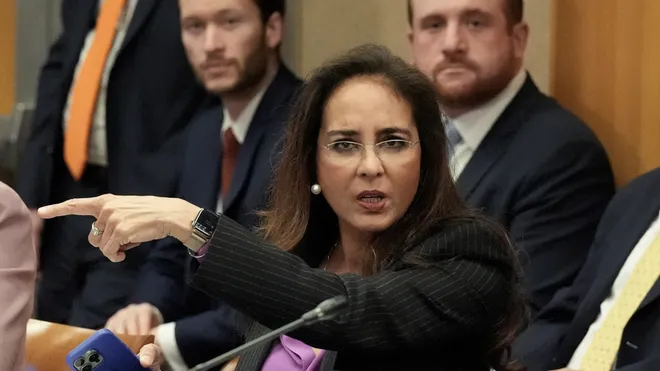As the 2024 presidential election approaches, the Department of Justice (DOJ) is taking a closer look at voter registration rolls across several key swing states. The move is part of an effort to identify and remove ineligible voters in swing states, aiming to ensure cleaner, more secure elections.
This action has sparked both support and controversy, as politicians, voters, and legal experts weigh in on the potential impact on election integrity and voter access.
Why the DOJ Is Taking Action
The DOJ says the goal is to protect the integrity of the election system. Voter rolls can sometimes contain names of people who have moved, passed away, or are otherwise ineligible to vote. This includes:
- People who have moved to another state but are still registered.
- Deceased individuals whose names were not removed.
- Non-citizens accidentally added to rolls.
- Duplicate registrations under multiple addresses or names.
The Department is using a combination of federal databases, state records, and local reports to identify these cases.
“We are not trying to suppress votes—we are making sure only eligible voters stay on the rolls,” a DOJ spokesperson said.
What Are Swing States?
Swing states, also known as battleground states, are places where both Democratic and Republican candidates have a strong chance of winning. These states often decide the outcome of national elections. For 2024, swing states include:
- Pennsylvania
- Michigan
- Georgia
- Arizona
- Wisconsin
- Nevada
- North Carolina
Because of their importance, any small change in voter numbers or turnout can tip the balance.
How the DOJ Is Inspecting Voter Rolls
The DOJ is working with state and local election officials to review and audit the voter registration lists. The process includes:
- Cross-checking names with death records, change-of-address lists, and immigration databases.
- Verifying identity documents submitted at the time of registration.
- Flagging duplicates and inconsistencies.
- Sending notices to voters whose eligibility is in question, giving them time to respond and confirm.
This is in line with the National Voter Registration Act (NVRA) of 1993, which requires states to maintain accurate voter lists.
Supporters Say It’s About Election Integrity

Supporters of the DOJ’s efforts argue that removing ineligible voters in swing states is a necessary step to maintain trust in the system.
“Every fake vote cancels out a real one,” said Jason Mills, an election policy advisor. “If we want fair elections, we must ensure only eligible citizens vote.”
They point out that errors on voter rolls can lead to:
- Misallocation of resources at polling places.
- Voter fraud opportunities.
- Legal challenges after elections.
Many conservative lawmakers and watchdog groups have been calling for stricter voter list management for years. They believe this move is long overdue.
Critics Fear Voter Suppression
However, not everyone is happy with the DOJ’s move. Civil rights organizations and some Democrats warn that these actions could accidentally remove eligible voters, especially in communities of color or low-income neighborhoods.
“There is a long history of using ‘clean-up efforts’ as a cover for voter suppression,” said Tamika Reid, a spokesperson for a voter rights nonprofit.
They’re especially concerned about:
- Errors in data matching, where someone’s name is similar to a deceased person or another voter.
- Language barriers or lack of communication, leading to missed responses from flagged voters.
- Mass mailings and purges close to the election, leaving little time to fix mistakes.
Groups like the ACLU and the League of Women Voters have already filed public records requests and lawsuits in some states to monitor the process.
Past Examples and Legal Battles
This isn’t the first time voter roll purges have made headlines. In past elections:
- Georgia (2018): Around 100,000 voters were removed due to inactivity. Critics said many didn’t know they were being purged.
- Ohio (2016): The state removed voters who hadn’t cast a ballot in six years. The Supreme Court later upheld the move.
- Florida (2012): Officials attempted to remove non-citizens but found that many flagged names were citizens after all.
These cases highlight the risks involved in large-scale list cleaning, especially if done too close to election day.
How This Could Impact the 2024 Election
The timing and location of the DOJ’s actions are crucial. Swing states can be decided by a margin of just a few thousand votes. Removing a small percentage of voters—correctly or incorrectly—could have real consequences.
Key concerns include:
- Reduced turnout if voters find out they’ve been removed on Election Day.
- Delays and confusion at polling stations trying to re-verify voters.
- Increased mistrust in the electoral process.
Still, officials insist that the process will be transparent and in line with legal protections.
What Voters Can Do
Whether you support or oppose the DOJ’s initiative, there are steps every voter can take to protect their right to vote:
- Check your registration status early on your state’s election website.
- Update your address and personal info if you’ve moved recently.
- Respond to any notices or mailings from election officials.
- Bring valid ID when voting, even if not required in your state.
- Ask for help from poll workers if you face issues on voting day.
It’s also a good idea to vote early or by mail if your state allows it, giving you time to resolve any registration problems.
Transparency and Oversight
The DOJ says it will release reports and data to ensure transparency. Independent groups and journalists are also tracking the number of voters being removed and the reasons for it.
Some swing states have formed bipartisan oversight panels to review the DOJ’s requests and ensure they comply with state law.
Still, the concern remains: Will these efforts clean up the system, or will they add more chaos to an already heated election season?
Final Thoughts
The removal of ineligible voters in swing states is one of the most sensitive topics in the lead-up to the 2024 U.S. presidential election. While some see it as a much-needed step to strengthen the voting process, others see it as a threat to voter access and fairness.
What’s clear is that both sides are watching closely. The balance between election security and voter rights will likely remain a major issue not just in 2024, but in many elections to come.
Read Next – Women’s History Museum: Congress Pushes for Progress






